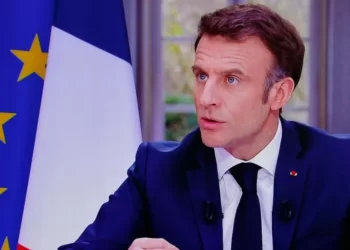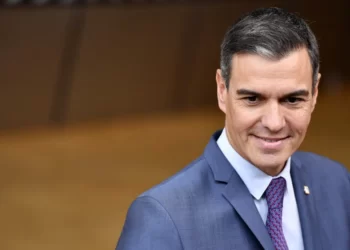A new poll has revealed that the majority of Swedes are in favour of joining NATO, as Sweden’s ruling party is preparing for a debate on whether to abandon their country’s longstanding neutrality when it comes to military alignment.
The survey, carried out by polling institute Novus, showed that 51 percent of Swedes are in favour of joining the Western military alliance. Being the first time, the pollster recorded a majority on the issue, and up from 45 percent just a week ago.
The Russian invasion on Ukraine has sparked a surge in public support for joining NATO. Recent polls by other institutes previously showed a majority in favour of joining, but Novus disclosed that it believed public opinion was now being influenced by the NATO debate underway in neighbouring Finland, where the issue is being mulled by legislators as a result of the publication of a security policy white paper last week.
Together with Finland
Many Analysts have predicted that Finland will ultimately submit a bid in time for a NATO summit in June this year (2022).
Finnish Prime Minister, Sanna Marin, visited her Swedish counterpart, Magdalena Andersson last week, a visit that signalled the neighbouring countries, which are both NATO partners but officially “non-aligned”, are moving in unison. Novus Chief Executive, Torbjorn Sjostrom, disclosed in a statement that “Swedish opinion in favour of NATO is increasing because they believe it will be done together with Finland and [people] are then more positive to a Swedish membership”.
If Finland decides to join the military alliance, 64 percent of Swedes who were questioned said they were in favour of joining, Novus noted.
Swedish Foreign Minister, Ann Linde, on Thursday, April 21, 2022, said she wanted to speed up the completion of Parliament’s Security Policy Analysis, which is meant to guide its members’ decision. Linde told broadcaster Sveriges Radio that she wanted it completed by May 13, 2022, instead of May 31, 2022, as currently planned. She said “Finland has already published its analysis and there is strong pressure on us to complete our analysis”.
What Informed the U-Turn?
In January this year, (2022), Social Democratic Prime Minister, Sanna Marin, declared in Helsinki (Finland’s capital) that Finland could not be expected to seek NATO membership during the current legislative period. But, Russia’s invasion on Ukraine, has laid bare the disadvantages of being a non-member.
While NATO provided Kyiv with a certain amount of help, it has remained reluctant to intervene directly or collectively under Article 5, which allowed NATO to intervene for its members in war crises. Finland, similar to Ukraine, is a direct neighbour of Russia, sharing a 1,300km (600-mile) long border.
A Senior Lecturer for European Security at Aberystwyth University, Alistair Shepherd, revealed that major factors contribute to the growing pressure mounting on Finland and Sweden.
“Unsurprisingly, Russia’s invasion in Ukraine is the key factor pushing Sweden and Finland closer to applying for NATO’s full membership. Russia’s invasion has changed the political discourse in Sweden and Finland and also crucially public opinion”
Alistair Shepherd, Senior Lecturer for European Security at Aberystwyth University
There are indications that both Finland and Sweden are heading towards a genuinely historic change of course in their respective security policies. During the Cold War, Sweden and Finland were essentially considered neutral States, albeit for different reasons.
READ ALSO: Over 1 Million Children In Ghana, Kenya And Malawi Protected By First Malaria Vaccine























